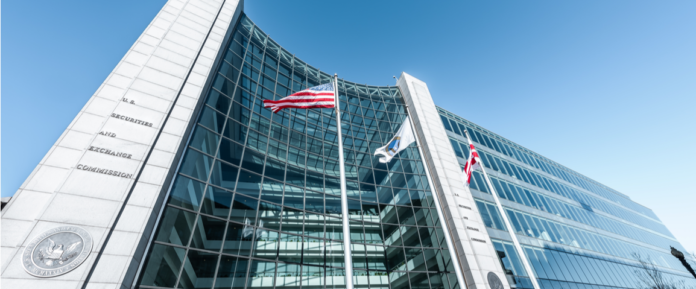
President Donald Trump has recently appointed Republican Elad Roisman as the newest member of the US Securities and Exchange Commission. Roisman has now been confirmed by the Senate, and it appears that Roisman might play a pivotal role in introducing federally regulated cryptocurrency legislation, including Bitcoin ETFs.
During a hearing before the Senate Banking Committee in July, Roisman said the following,
“The SEC must examine and re-examine its rules, regulations and guidelines to ensure that they are still working as intended to accomplish the SEC’s mission. This is most recently manifested in areas such as data protection and cybersecurity, as well as the emergence of new investments and technologies such as initial coin offerings and blockchain. It is essential that the SEC approach these new challenges in a fair and transparent manner, provide clarity and certainty to the markets and investors, and enforce the laws and regulations that hold market participants accountable.”
Roisman added further, “There’s a perception that the markets are rigged against the little guy and I think it’s important for the SEC to try to dispel that notion.”
Another Trump nominee has been appointed to the SEC, it is now back to full strength with 5 members (until one leaves in Dec). Elad Roisman is said to be in favour of Bitcoin ETFhttps://t.co/jncQU6l0pP
Does this breaks a 2-2 deadlock at the SEC, with 3 to 1 now in favour?— Alistair Milne (@alistairmilne) September 6, 2018
With the appointment of Elad Roisman, the tides may suddenly be turning in the favor of a positive ruling for a federally regulated Bitcoin ETF.
Suggested Reading : Learn the basics of Bitcoin in our beginner’s guide.
Bitcoin ETFs: Where are we now?
To recap, in late July, the Winklevoss Twins’ Bitcoin ETF proposal was voted down in a 3-1 vote by the SEC. The lone dissenter, Republican Hester Peirce, aka ‘Crypto Mom‘, made national headlines following the decision. She wrote in a public letter to the SEC,
“Approval of this order would demonstrate our commitment to acting within the scope of our limited role in regulating the securities markets. The Commission’s mission historically has been, and should continue to be, to ensure that investors have the information they need to make intelligent investment decisions and that the rules of the exchange are designed to provide transparency and prevent manipulation as market participants interact with each other.”
While not yet stating that he would vote in favor of a Bitcoin ETF, a look into Roisman’s background suggests that his views are tightly aligned with Crypto Mom.
Roisman is currently serving on the Chief Counsel to the Senate Banking Committee under Senator Mike Crapo. Both Roisman and Peirce have been outspoken advocates for rolling back banking regulations to promote greater financial opportunity and better customer service, most notably following the 2008 economic crisis and legislation surrounding Dodd-Frank. Prior to serving under the Senate Banking Committee, Roisman served as Counsel to SEC Commissioner Daniel Ghallagher. Widely known as an advocate for fintech regulation, Ghallagher joined the board of blockchain company Symbiont after leaving the SEC in 2016
As SEC votes tend to fall along party lines, there is little reason to doubt that Republican’s Peirce and Roisman will be aligned in the VanEck/SolidX Bitcoin ETF hearing at the end of this month.
Roisman’s Appointment May Catalyze a Swing Vote from Independent Jay Clayton
As it currently stands, the SEC consists of Republican Commissioners Hester Peirce and Elad Roisman, Democrats Kara Stein and Robert Jackson Jr. and Independent SEC Chairman Jay Clayton.
Stein and Jackson will likely continue to vote against Bitcoin ETFs, however, Kara Stein is scheduled to leave the SEC before the beginning of December. This leaves Jackson as the lone Democrat, relying on Independant Chairman Jay Clayton to tie the vote.
Chairman Clayton has consistently taken a measured and cautious approach to cryptocurrency regulation. In a public statement from December Clayton writes,
“We at the SEC are committed to promoting capital formation. The technology on which cryptocurrencies and ICOs are based may prove to be disruptive, transformative and efficiency enhancing. I am confident that developments in fintech will help facilitate capital formation and provide promising investment opportunities for institutional and Main Street investors alike. I encourage Main Street investors to be open to these opportunities, but to ask good questions, demand clear answers and apply good common sense when doing so.”
While Clayton did vote against the Winklevoss Bitcoin ETF, it was likely out of necessity given that a favorable vote would have only tied the decision at 2-2 and caused a politically unsavory gridlock. Clayton was also well aware during the Winklevoss decision that the VanEck/SolidX proposal was only a short time away.
With a Republican majority, Clayton could possibly avoid a regulatory gridlock as he did in the Winklevoss decision, leading to a 3-1 vote in favor of the VanEck/SolidX Bitcoin ETF proposal.

Unhashed.com is author of this content, TheBitcoinNews.com is is not responsible for the content of external sites.
Our Social Networks: Facebook Instagram Pinterest Reddit Telegram Twitter Youtube










